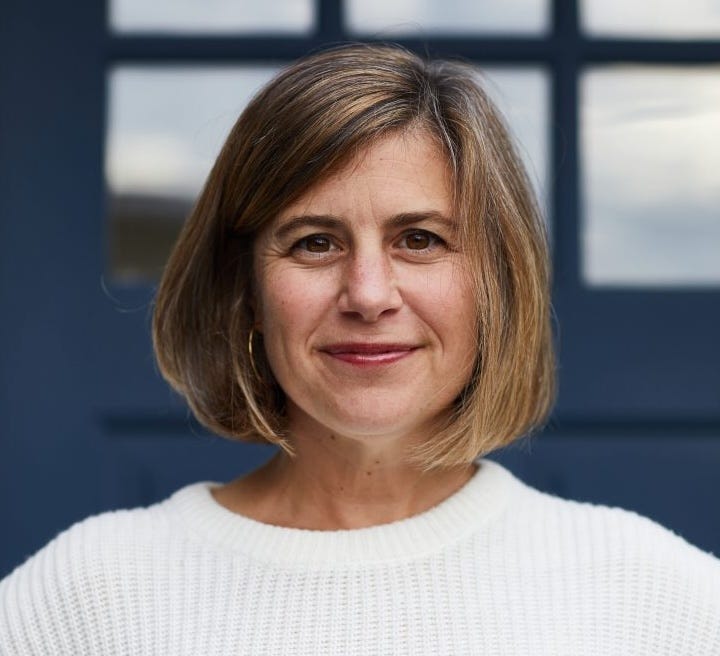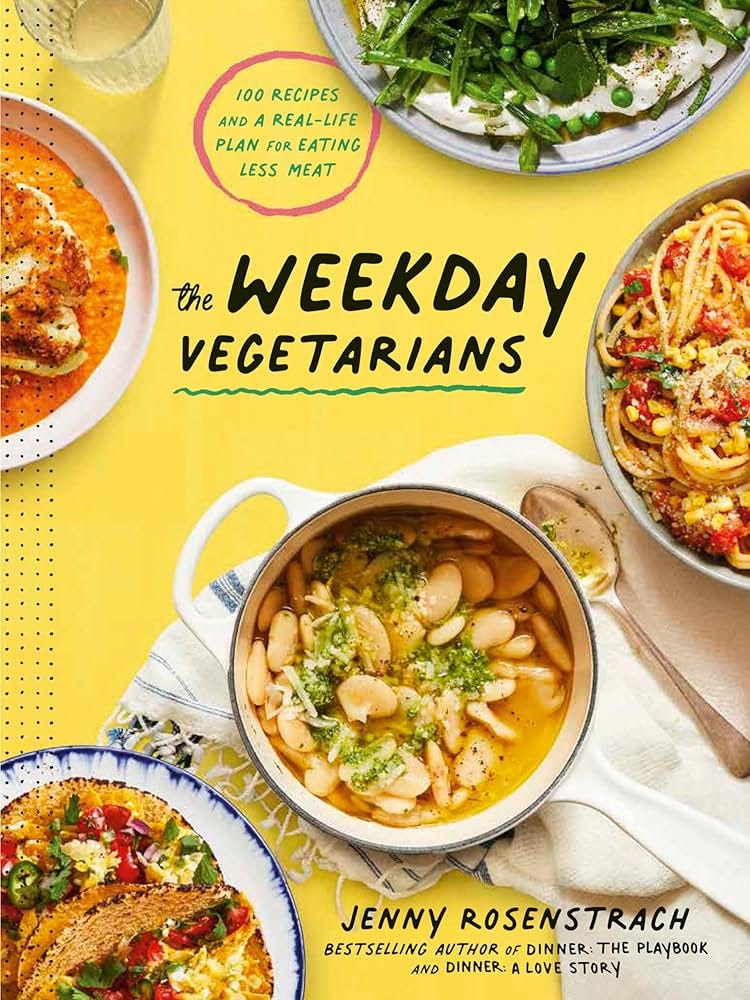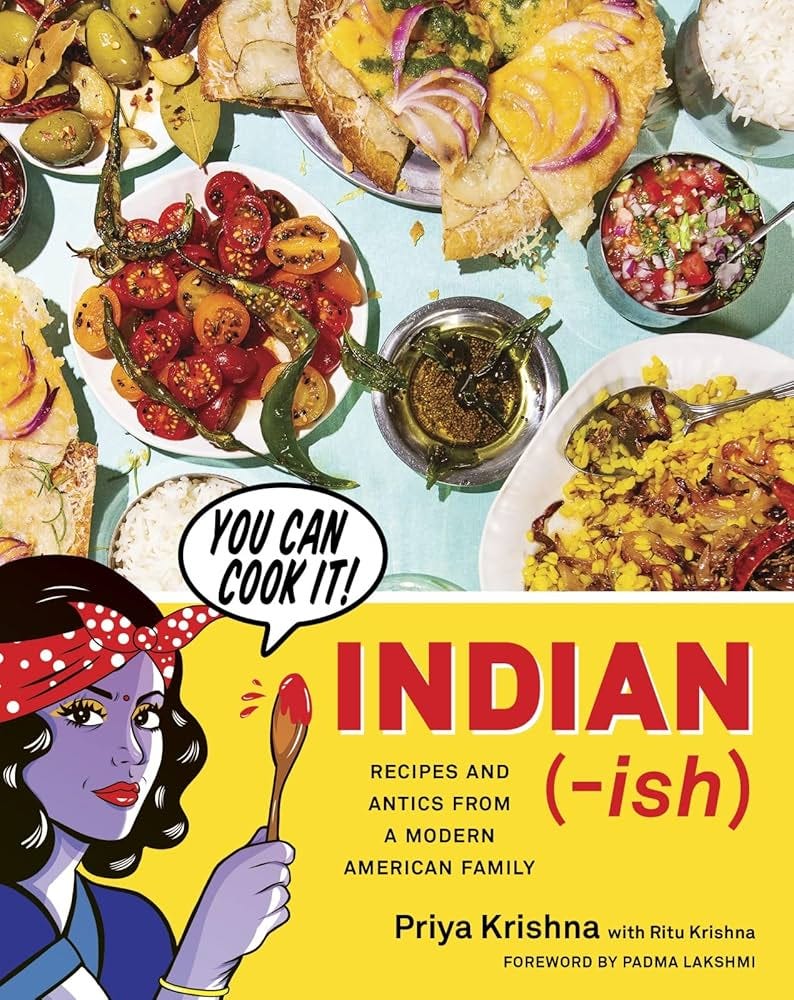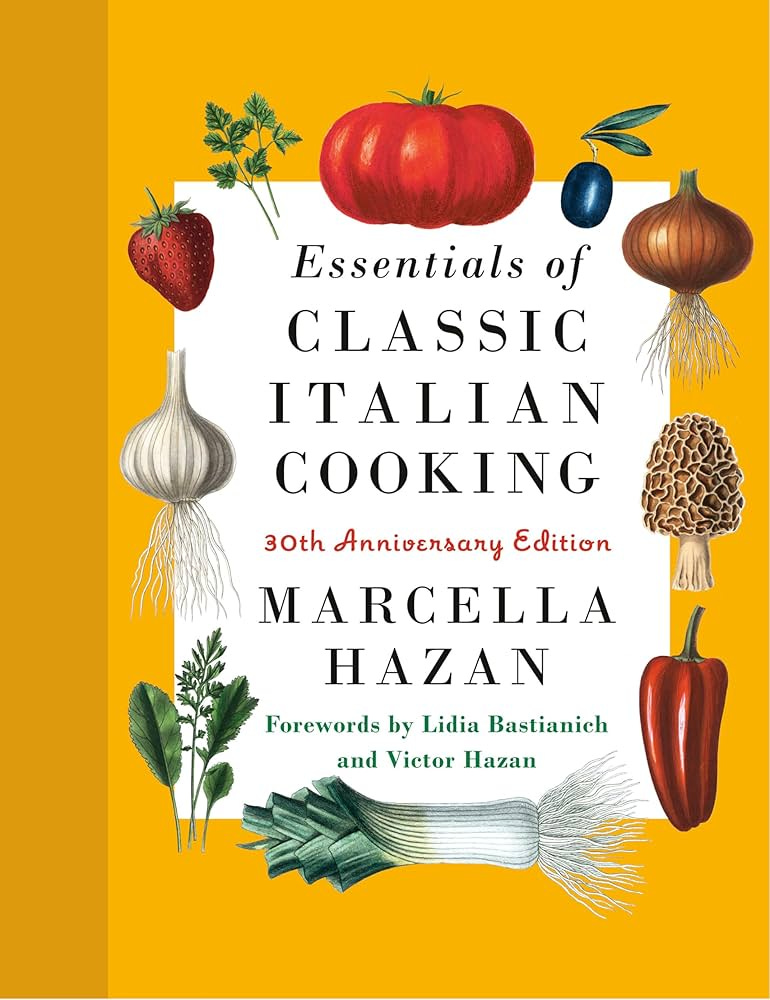Cookbooks Don't Have Delete Buttons
And that's a good thing, says Dinner, a Love Story creator and cookbook super-fan Jenny Rosenstrach.
Before we dive in, a big thanks to Katie and Meredith for featuring me on It was fun to answer the questions for a change! Read the interview here.
Don’t hold me to it, but I’m pretty sure that Jenny Rosenstrach’s Dinner: A Love Story was the first Substack I ever subscribed to, right after she joined the platform in 2021. It was definitely the first one I paid for.
As a mom and someone who had been deep in the trenches of thinking about food for families for many years1, I knew her uber-popular blog, of course. Also called Dinner: A Love Story, Jenny started it when her children were small (and choosy) as a way to get excited about family dinner again. In the 15-ish years since and with multiple bestselling cookbooks under her belt, Jenny’s audience has only grown. We’ve all read and cooked along as, one by one, her daughters went to high school, then college, and then graduated. We’re probably all thinking the same thing—how does time pass so quickly? At least I am.2
But even as family life changes, family dinner endures, and Jenny is its unpretentious, easy-going champion.
More than four years after I first subscribed, Jenny’s Substack is still one I open minutes after it lands in my inbox. Every week she sends out a (free!) Three Things dispatch that’s mostly about food and recipes, but sometimes about novels, or running, or restaurants, or New York City, or dogs, or the bittersweetness of family life when children are growing up and parents are aging. For those few minutes you spend reading the newsletter you’re part of Jenny’s friendly orbit.
Jenny has written five cookbooks: Dinner, A Love Story, Dinner: The Playbook, How to Celebrate Everything, The Weekday Vegetarians (Bookshop/Amazon), and The Weekday Vegetarians Get Simple (Bookshop/Amazon).
She’s also a true fan and sharp observer of other people’s cookbooks. I’m so happy to welcome Jenny to Cookbookery Collective. It feels especially apropos this first week of September. Even if we don’t all have kids at home, that back-to-school and back-to-routine feeling is in the air. It’s time to get dinner on the table.
The Cookbookery Q&A with Jenny Rosenstrach
About how many cookbooks do you own?
JR: Probably about 150 — I used to own a lot more, but when I downsized from a house to an apartment, I was ruthless about which ones made the cut.
How do you organize them?
JR: Much to my husband’s annoyance, I organize them by color (he likes a more organic, more chaotic bookshelf) with one exception: books by the same author live next to each other, even if their spines are different shades. It’s not just a decorative thing, it does actually help me find books more efficiently because I remember what my favorites look like — for instance, I know that Priya Krishna’s Indian-ish (Bookshop/Amazon) is yellow and Meehan’s Bartender Manual by Jim Meehan (Bookshop/Amazon) is green and Melissa Clark’s Dinner (Bookshop/Amazon) is gray, so I zero in on those colors when I need them.
What would you say to someone who questions why cookbooks still matter in our "digital age"?
JR: This might be projecting, but I like to think other cookbook authors are like me — I tend to think so much more rigorously about the recipes that I assemble for my cookbooks versus the recipes I write up for my newsletter or blog. Since these are recipes that I won’t ever get to edit or update or tweak, I test and triple-test them. Plus, there’s something that instantly makes a recipe special when it’s been chosen to live between two covers for posterity. There’s no delete button in a book. You have to really love a recipe to publish it in print.
Your most recent cookbooks are The Weekday Vegetarians and The Weekday Vegetarians Get Simple. What are you most proud of when it comes to that series?
JR: I was proud of the way those books came together, particularly the first volume — I wrote the story while I was living it, and had so much to say and cook in the process. I was also proud that in a small way I was able to contribute to the climate change conversation. Eating less meat is the single most important thing we can do as individuals to help combat climate change, and I feel like I found a doable, realistic way in for the average person who was afraid to take the full leap to veganism. My working philosophy was: It’s easier to convince more people to eat less meat, than to convince fewer people to eat zero meat.
What is the first cookbook you remember cooking out of?
JR: The Silver Palate (Bookshop/Amazon). A friend’s mom gave it to me as a gift when she heard I liked to cook. Which doesn’t mean I knew how to cook. I was so confounded by the recipes that called for chicken stock (was that the same thing as chicken broth?) and asked you to reduce the sauce by a third immediately after adding liquid to it. I had no idea what “reducing” meant and literally scooped a cup of broth out of the pot.
Another one from the early days is Marcella Hazan's The Classic Italian Cookbook, combined with another to form Essentials of Classic Italian Cooking (Bookshop/Amazon). I was that cliche American who returned from her first trip to Italy and headed right to the bookstore to find out if I could learn how to cook like a real Italian. The guy working behind the counter handed me a mass market paperback copy of Hazan's book, and with the understatement of the year, said, "People really seem to like her." I still make so many of the recipes from that book and wrote about her so much on Dinner: A Love Story, that when the 30th anniversary edition came out a few years ago, the editors asked me to endorse it with a blurb. I felt like I had won a Pulitzer.
What kind of cookbook reader/user are you?
JR: I will cook any recipe that sounds appealing, but I’m way more likely to do so if there is a story or a specific personality behind it, whether it’s a cookbook author, a blogger, an influencer, a newsletter writer, a New York Times columnist, etc. I like knowing how a recipe fits into someone’s life, and I like feeling like I know that person, that I can trust that person giving it to me — it makes it easier for me to picture how and when to make it. My worst nightmare is a digital behemoth like AllRecipes.com.
What is one cookbook you read, but don’t cook from?
JR: Peg Bracken’s The I Hate to Cook Book (Bookshop/Amazon). It was published in 1960 and still holds up as one of the funniest books every written about home cooking. The recipes? Like Ham Lime Supper and Fast Cheese Scallop? Not so much. P.S. They released a 50th anniversary edition recently, but I suggest tracking down a vintage copy which includes the most charming illustrations by Hilary Knight.
What do you find boring in a cookbook?
JR: As the great Laurie Colwin once wrote, “How depressing it is to open a cookbook whose first chapter is devoted to equipment?”
What is a cookbook that totally transports you?
JR: The Farm Table (Bookshop/Amazon), by Julius Roberts. His food is rustic and plant-based, and he cooks it all in an outdoor shed in the middle of his farm in the English countryside. If only!
What's a cookbook you're currently obsessed with?
JR: Samin Nosrat’s new book Good Things (Bookshop/Amazon), which releases on September 16. In the category of “How did I get so lucky” I was invited to a promotional potluck event where two dozen or so food writers cooked and brought a dish from the book. When I say every single dish was mind-blowing I’m not kidding. The slow-roasted salmon, the yellow buttermilk birthday cake, the whipped baba ghanouj, the creamy miso-ginger dressing. It’s 100 percent going to be the book I’m giving everyone for the holidays this year.
What’s one book you’re sheepish to admit you’ve never cooked out of?
JR: Joshua McFadden’s Six Seasons: A New Way with Vegetables3 (Bookshop/Amazon). As a Weekday Vegetarian and someone constantly on the lookout for people doing innovative things with vegetables and home cooking, how do I not own that book? All my food enthusiast friends are religious about it and SO excited about his next one coming out at the end of September, devoted to pasta. Be right back, I’m going to order both of them right this second.
I know this is like choosing a favorite child, but do you have a favorite among the cookbooks you’ve written?
JR: Dinner: A Love Story was my first book, and I had so much to say! It was the height of the blogger-penned memoir-cookbook era, and was based on my dinner diary, the book where I’ve recorded every meal I ate or cooked since February 1998. It came out in 2012 and I billed it as a cookbook that would cover all the things that can happen at the family dinner table during every stage of a family’s life. Little did I know that our family story was just beginning (!) and that the dinner table is constantly evolving. For instance, my 2012 self, who waxed nostalgic about Grandma Turano’s meatballs and Tony’s Steak, would not have predicted The Weekday Vegetarians (Bookshop/Amazon). Actually, The Weekday Vegetarians is tied for most favorite. These days, I use that book more than any of my others. I can't wait to see where the family table takes me next.
Interview has been lightly edited. If you purchase a book through one of these links, I may receive a small commission.
Last Bites
Congratulations to
on the launch of the True North Cabin Cookbook, Volume 2 (Bookshop/Amazon) this week! Stephanie was one of the first people who reached out to me when I joined Substack. She had me on her podcast, and is a big supporter of cookbook authors. Her new book, published by the Minnesota Historical Society Press, is lovely and full of cozy recipes for the fall and winter.The Rainy Day Bites Instagram cookbook club announced its fall theme. Read more about the club and its founder here.
A big (and belated) congrats to all the IACP cookbook award nominees!
Molly Yeh is collabing on a clothing line.
NYT Bestsellers: I neglected checking this list for much of the summer, thinking most books that had a chance would be out mid-August or later. Oops. Feeding Littles Lunches was on the list for three weeks.
Thanks for reading! If you enjoyed this post please tap the ❤️ button, restack, or share with another cookbook fan.
Before I moved to Real Simple, where I’m the food director now, I was the food editor at Parents magazine.
I’m always particularly nostalgic at the end of summer.
Honestly, this is the most shocking answer I’ve ever received to this question. I literally GASPED.







![The Farm Table: [A Cookbook]: Roberts, Julius: 9781984862662: Amazon.com: Books The Farm Table: [A Cookbook]: Roberts, Julius: 9781984862662: Amazon.com: Books](https://substackcdn.com/image/fetch/$s_!CAWd!,w_1456,c_limit,f_auto,q_auto:good,fl_progressive:steep/https%3A%2F%2Fsubstack-post-media.s3.amazonaws.com%2Fpublic%2Fimages%2F623d4d98-721a-4170-bf87-6ac90f01ce46_701x1000.jpeg)
The original DALS is my go-to baby shower gift--along with bookmarks for my fave recipes in there. Even though I subscribe to Jenny's newsletter, thanks for the interview angle!
Hmm, I dunno, I really like the equipment lists in some books. Not when they run, item after item separated by commas, in paragraphs, barely a sentence. But those with illustrations, photos; some are beautiful compositions, and sometimes I find cookware I hadn't known nor considered - like those bottomless pastry rounds, which Martin Nordin suggested in his book "Green Burgers." Those are good for more than pastry, as he shows. Of course, about my favorite piece of kitchenware is a wooden ladle bought for one dollar at a yard sale over five decades ago, so . .